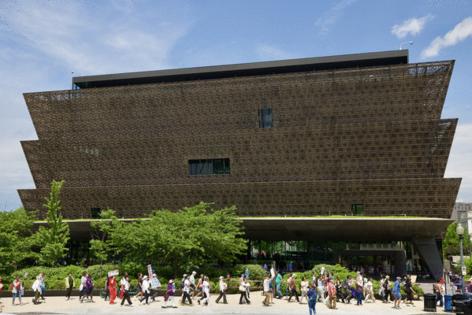John M. Crisp: Yes, slavery really was that bad
Published in Op Eds
As President Donald Trump and his compliant Republican partners take more and more control of America—the economy, law enforcement, education, foreign policy, voting, even libraries—museums are inevitably going to drift into the intersection of Trump’s crosshairs.
Of course. Museums are an obvious target. By memorializing what we wish to preserve, to remember and to forget, museums create a narrative about who we are. That sort of power is attractive to a man such as Trump.
Thus, in March, Trump issued Executive Order 14253 (“Restoring Truth and Sanity to American History”), which objects to “a concerted and widespread effort to rewrite our Nation’s history, replacing objective facts with a distorted narrative driven by ideology rather than truth.”
The order puts Vice President JD Vance in charge of “Saving Our Smithsonian,” directing him to “remove improper ideology” and to eliminate exhibits or programs that “degrade shared American values” or “divide Americans based on race.”
In fact, race seems to be a significant target of the revision of our national narrative that Trump hopes to accomplish. It’s not surprising that the National Museum of African American History and Culture is among the eight museums on his list.
Trump used to like this museum. He visited in 2017, shortly after it opened. He called it “fantastic” and “truly great,” adding, “I’m deeply proud that we now have a museum that honors the millions of African-American men and women who built our national heritage…”
For once, I agree with Trump: I visited the museum recently and came away with similar impressions. I remember thinking that if I were Black, this museum would make me feel proud of my heritage.
But Trump seems to believe that something has changed since 2017. His most eye-catching complaint has to do with slavery; he suggests that the museum spends too much time focusing on “how bad Slavery was.”
This is hard to parse. It’s difficult to imagine memorializing the African-American experience without including slavery, as well as Jim Crow and lynching. And it’s hard to imagine how the most creative curator could produce a sugar-coated exhibition on slavery and still keep in touch, more or less, with the truth of its brutality.
But why did Trump call the museum “truly great” in 2017 and then want to revise it today? I suspect it has to do with his discovery of the leverage of what I’ll call the politics of shame and pride.
Authoritarians nearly always try to whitewash their country’s history, to minimize the shameful elements and emphasize the admirable parts, even if it requires disingenuous rewriting of the facts. Thus, Trump wants to shrug off “how bad Slavery was” while renaming army posts with at least the surnames of the Confederate officers who fought to preserve slavery.
But let’s be honest: While our national racial heritage isn’t much to be proud of, no one alive today has any reason to be embarrassed or particularly ashamed of it.
My roots in Texas predate the Civil War, and my family has documentary evidence that our relatives fought on the wrong side of that conflict. In fact, in my direct lineage are small-time Texas slaveholders.
Am I embarrassed by or ashamed of this heritage? Not in the least. Those relatives are much too distant and separated by generations of people, good and bad, to have much bearing on how I see myself.
Slavery and the destruction of the Native Americans were America’s two great original sins. While there’s no point in wallowing in guilt over them, it’s also a mistake to pretend they weren’t as bad as they really were. Remembering them reminds us that we’ve done better, and we can do better still.
In any case, no matter what one thinks about Trump, it’s not clear why so many Americans—a people whose nation was founded in rebellion to too much centralized authority—seem so willing to allow the power to control our cultural narrative to reside in the hands of one man.
This is a really bad idea. Unfortunately, that’s where we seem to be.
_____
ABOUT THE WRITER
_____
©2025 Tribune Content Agency, LLC
























































Comments